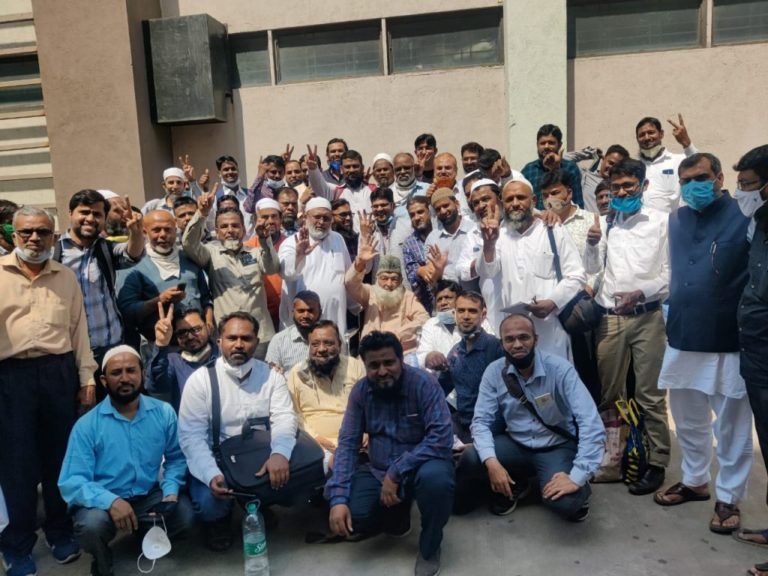On March 6, acquittal of 122 Muslims arrested by Surat city police under draconian UAPA on 28 December, 2001, by a Gujarat court has once again raised question mark on criminal justice system and justice delivery mechanism. They had gathered at the Rajeshree Hall, in Athwa Lines area of the city under the banner of the All-India Minority Education Board.
This is not the first time that acquittal has taken place after accused languishing in jail for many years. Every time after such acquittals, questions are raised, glaring faultlines explained and reforms suggested. But as time passes, the situation comes back to a square one. No concrete measure has been taken to ensure that the innocent are not punished and the even one guilty person is not spared. As per the rule of law, and thus the duty of the Judge to ensure that no innocent is punished and the guilty do not go scot-free. Earlier a court in India observed, “One of the basic principles of the criminal justice system is that the benefit of doubt must always be extended in favour of the accused. 1000 culprits can escape, but, one innocent should not be punished.”
In the present case, the court said in its order that the prosecution had failed to produce ‘cogent, reliable and satisfactory’ evidence to establish that the accused persons belonged to the SIMI and had gathered to promote the activities of the banned outfit. CJM Dave made it clear that all those arrested 20 years ago could not be held guilty under the draconian anti-terror law.
According to M R Shamshad, a senior Supreme Court Lawyer, “This is another failed criminal trial. This type of persecution has destroyed lives of many innocents. No system justifies this. Sad part is that our prosecuting agencies get away with it without any accountability because we have no legal regime to hold those agencies accountable. This has been happening since long and unfortunately, it is likely to continue. Irrespective of political parties in power, with rare exception, our police system has remained unaccountable.”
Shahid Azad, Advocate Delhi High Court, said, “If you go through the entire scheme which is there in the CRPC with regard to investigation and inquiry, the fault lies there. Unless and until we have the mammoth amendment to this and there must be some check on the policing not in the sense of administration but in the sense of investigation and inquiry from the day one, (the situation cannot change). The Supreme Court in their various pronouncements have shown their concern but in other directions. Their concern is with regard to the tainted investigation that in order to save somebody you implicate. They have shown concern for that.”
Advocate Azad added, “But our concern is that in the tainted investigation where entirely a false case is attributed against an innocent person and the allegations are of such a serious nature that even the subordinate courts don’t want to meddle into that because they say that it is a very sensitive matter and very serious allegations are there and it is a question of a sovereignty and integrity of the nation and you face the trial. The investigative officer from the day one knows that it is false case and also knows that the fate of the case would be acquittal of the person.”
Amicus-curiae and legal consultant, Supreme Court of India, Mr Athar Alam said, “My view is very much clear that all the accused persons implicated in this criminal matter was not actually involved in such an act or were part of banned organisation SIMI as alleged by the Prosecution. Prosecution during trial could not established their case nor bring any substantial evidence in their favour and the CJM Surat has acquitted all 126 persons on the ground of benefit of doubt. This order of acquittal may be challenged before High Court of Gujarat since people from one community are involved.”


